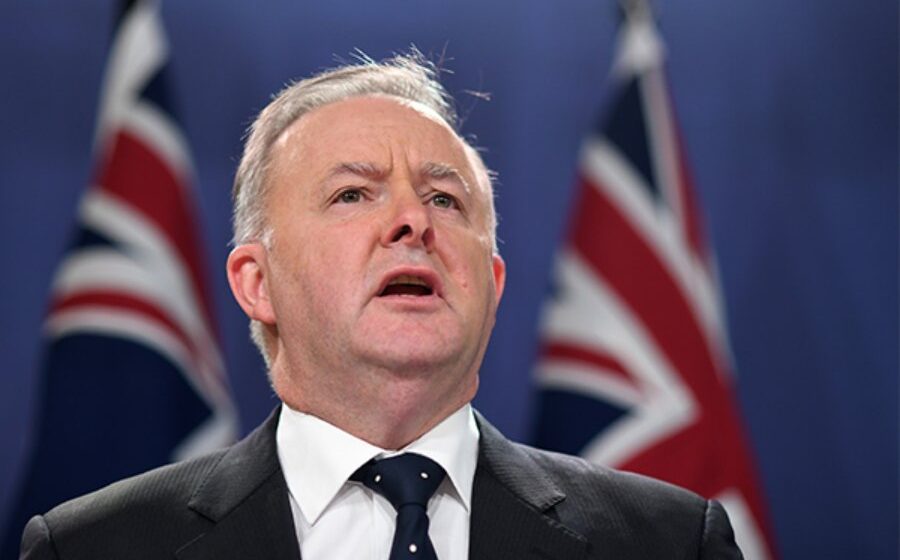Security experts say a visit to Ukraine by Prime Minister Anthony Albanese would send a strong message to authoritarian countries – including China.
Albanese is currently in Spain for the NATO Summit, where the Russian invasion of Ukraine is likely to be a front-of-mind issue.
Whether he visits Ukraine while in Europe remains to be seen.
But the Ukrainian ambassador to Australia is urging him to seriously consider the offer.
Vasyl Myroshnychenko said nations including China could be “emboldened” by Russia’s invasion and a visit by the Australian PM would send a “very strong message”.
It would also be a signal of solidarity.
“That would send a very strong message to the Ukrainian people that Australia, though being so far away, is standing strong with Ukraine,” he said.
Security experts say the visit would catch the attention of China.
“It’s really important to send a strong signal to China, in particular, that Australia and like-minded countries won’t tolerate these types of arbitrary annexations,” Dr William Stoltz, policy director at ANU’s National Security College, said.
Albanese has said he will listen to the advice of Australia’s top security agencies before accepting any invitation.
He will meanwhile meet with leaders from New Zealand, Japan and South Korea at a sideline meeting planned for the NATO Summit.
Albanese said he would welcome increased military cooperation to respond to global challenges, including China’s heightened presence in the Indo-Pacific.
“I would like to see increased interoperability with the armed forces of those Asia-Pacific nations,” he told AAP.
“China is becoming increasingly aggressive and now they have that [no limits] relationship with Russia.
“We as democracies need to stand up for the rule of international law, our values, and denounce that behaviour.”
Australia’s relationship with China has deteriorated in recent years.
Former prime minister Scott Morrison led calls for an inquiry into the origins of COVID-19.
China subsequently launched a series of trade strikes against Australian exports.
Markets like grain, meat, timber, seafood, wine and coal were all affected by restrictions and tariffs.
Further souring relations are conflicting views on the war in Ukraine.
Australia has thrown its support behind Ukraine while China says it supports Russia on the issues of “sovereignty and security”.
In a phone call between Chinese President Xi Jinping and Russian President Vladimir Putin, Xi “noted the legitimacy of the actions taken by Russia to protect the fundamental national interests in the face of challenges to its security created by external forces,” according to Russia’s official readout.
Australia has meanwhile dispatched the first four of 14 armoured vehicles to Ukraine as part of a $285 million aid package.
The invasion of Ukraine commenced on February 24.
Peace talks between Russia and Ukraine have made no progress and are not tabbed to resume until August.



